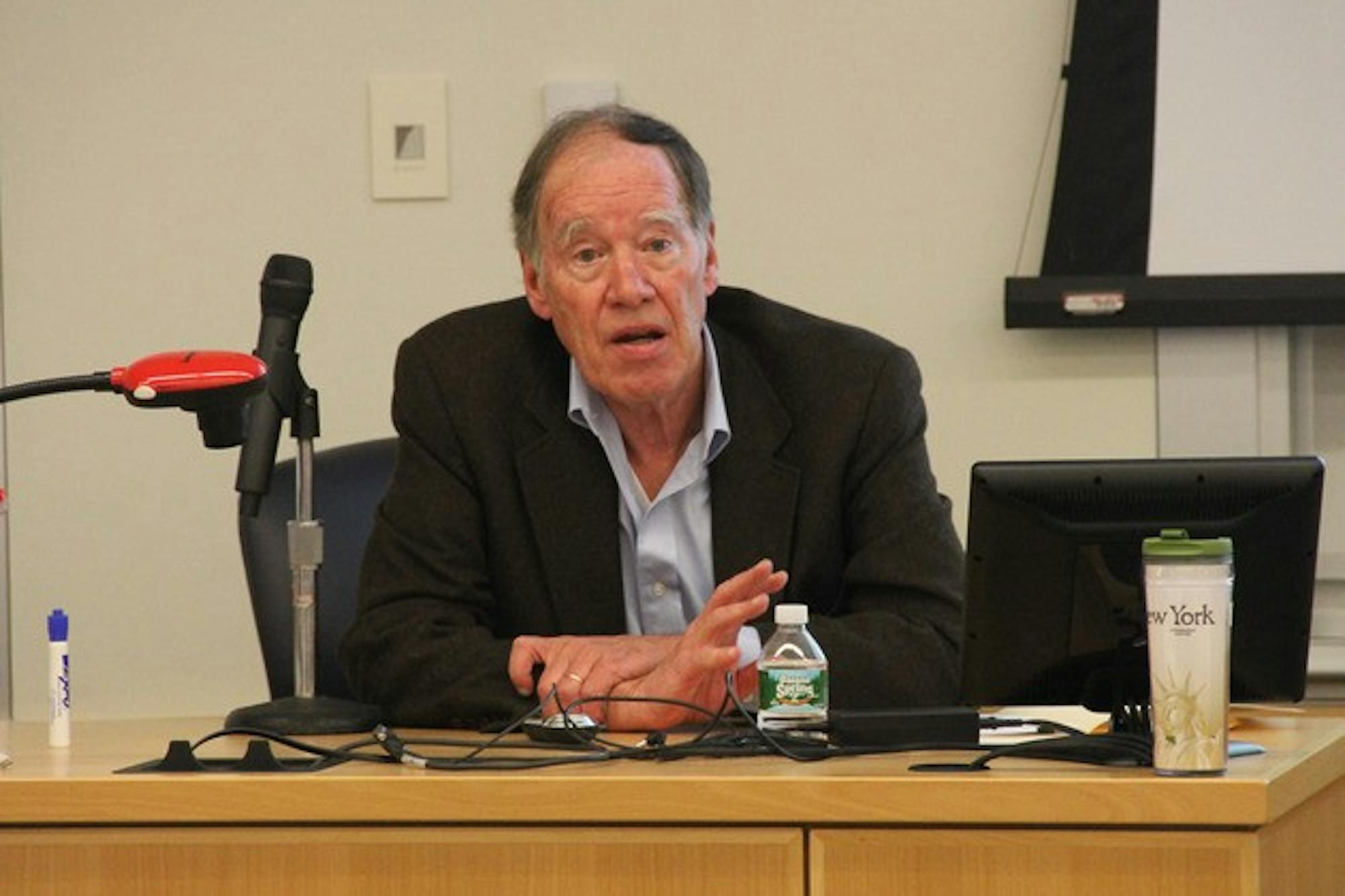Krimsky went to Russia in 1974 after he refused to believe the Western media's descriptions of the country. Shortly after arriving, however, Krimsky said he noticed how tightly monitored journalists were.
"The rule was we couldn't use the word Russian' or Russia'," Krimsky said. "We had to say USSR' or Soviet Union.'"
He described the state of surveillance on American journalists, noting that his building was guarded by Russian security guards at all times. He later found out that there were over 20 bugs and microphones hidden within his apartment and that the Russian government hired someone to tail him. A group of girls who lived close to his apartment were expelled from their school for befriending his wife, he said.
Surveillance was not the only obstacle it was almost impossible for Western reporters to avoid angering the regime and being labeled as anti-Soviet provocateurs.
"I got into trouble on several occasions, but everybody got into trouble," he said. "But I did not fear for my physical safety."
Krimsky discussed three incidents that he said led to increased tension between himself and the Russian authorities helping movie star Zoya Fyodorova reunite with her American lover, helping Joseph Stalin's grandson plan a potential defection to the United States and befriending prominent Russian dissidents.
Fyodorova fell in love and had a child with an American naval officer during World War II. As a result of the affair, she was sentenced to eight years in a Siberian work camp. In 1975, Fyodorova's daughter found out who her father was and wanted to visit him in America, and Krimsky, who had contacts in the American embassies, helped her obtain a visa. In the end, however, he was not able to break the story.
"The National Enquirer paid Vicky [the daughter] $5000 to keep her mouth shut," he said. "When I heard about it, I was very much annoyed."
While Fyodorova was a fairly minor public figure, the next person that Krimsky was linked to was anything but. In the summer of 1975, Joseph Alliluyev, the only son of Stalin's daughter, reached out to Krimsky because he wanted to visit his mother, who had fled to the United States in 1967. While Alliluyev ultimately decided not to travel to the United States, the incident angered Russian authorities.
"In Stalin's time, I would have been shot and Josef would have been strung up by his toenails," Krimsky said. "When things were bad, it could be tough, but they weren't going to kill you."
Krimsky said dissidents tended to befriend journalists who could share their stories with the rest of the world.
"Knowing Western journalists afforded dissidents a certain amount of protection because the Soviets knew that they couldn't be heavy-handed with people who had been named in international disputes," he said.
Krimsky became close friends with Nobel Peace Prize winner Andrei Sakharov, a Russian physicist and one of the loudest critics of the Soviet regime. In 1976, at the urging of Sen. James Buckley, R-N.Y., Krimsky helped organize and translate a dinner between Buckley and several dissidents, including Sakharov.
"It was the toughest evening I've ever had," Krimsky said. "I don't think I did a very good job, but I got their point across, and the two became very good friends."
Due to some misunderstandings, a private picture from the dinner was published in Newsweek. Krimsky said that the picture was "the straw that broke the camel's back."
Krimsky and two fellow American journalists, New York Times reporter Christopher Wren '57 and Newsweek reporter Alfred Friendly, were accused of being CIA agents. Wren, who currently teaches for the Master of Arts in Liberal Studies program, said the three were accused because they all spoke Russian fluently, had Russian friends and traveled around the country independently.
"We knew what was really going on," Wren said. "We baited them, and they hated to be baited."
In January 1977, Krimsky was officially ordered to leave Russia because he was an accused spy and had paid his family's maid and chauffeur in non-Russian currency, which was illegal at the time.
When Krimsky refused, the authorities threatened him and his family left a month later.
Krimsky said that he realizes in retrospect that while American journalists had to deal with officials who blocked their efforts, their lives were luxurious compared with that of ordinary Russian citizens. American journalists were allowed to buy food and other supplies from foreign stores that were off-limits to Russians.
"It made us feel a little bit guilty, but we were very popular at parties because we could bring the good vodka," he said.
Krimsky said he is disappointed that media outlets today do not consider international news a priority. From 1985 to 2010, coverage of international stories fell by 53 percent, and many large newspapers have eliminated their international bureaus.
"It's a reflection on America's lack of interest on anything international that doesn't have something to do with them," he said.
Wren said that Krimsky distinguished himself as a reporter who had an ability to find the most compelling stories. Wren once received a tip regarding a dissident's detention, but Krimsky beat him to the scene.
"I opened the door, and he was already there, taking notes," Wren said. "I still don't know how he got over there so fast."
Krimsky's lecture, titled "Journalism During the Cold War," was hosted by the Institute for Lifelong Education at Dartmouth.




